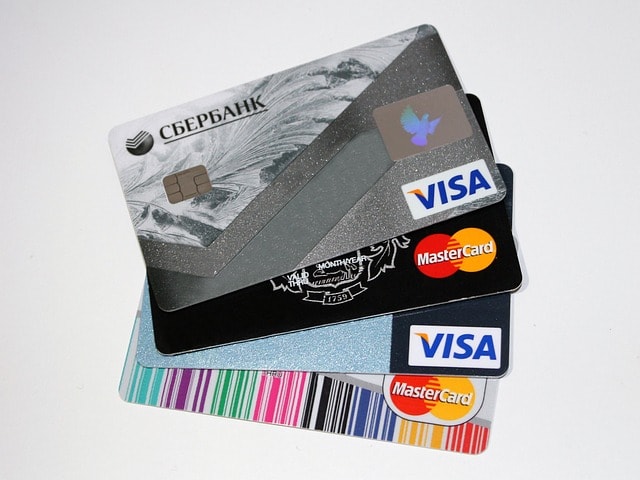Running a successful business takes more than just passion and great ideas. At some point, most businesses need extra cash to grow, invest, or simply keep things moving smoothly. This is where bank business lending comes in. Whether you’re looking to purchase new equipment, expand operations, or manage day-to-day expenses, banks offer various loan options to suit different needs.
In this guide, we’ll dive deep into what bank business lending is, the types of loans available, how to qualify, fees and tips for managing your loan effectively. By the end, you’ll have a solid understanding of how to find the right loan for your business needs.
What Is Bank Business Lending?
Bank business lending refers to the loans and other line of credit products banks offer to businesses. A business line of credit is a flexible financing option that businesses can utilize for various needs, such as managing cash flow or covering unexpected expenses. These loans provide businesses with the funds they need for various purposes, like purchasing inventory, upgrading equipment, or expanding operations. Unlike personal loans, business loans are designed specifically for the unique needs and risks of running a business.

Why Do Businesses Need Loans?
Businesses often require loans for reasons other fees, such as services such as:
- Expanding operations (opening a new location or hiring more staff).
- Buying inventory to meet increased demand.
- Investing in equipment to improve efficiency.
- Managing cash flow during seasonal slowdowns.
Business Loans
01

Business Loans
02

Business Loans
03
Business Loans
04

Business Loans
05
Business Loans
06


5
Average Review
Bank
- NO overdraft fees, ever
- FREE ATM* use — nationwide
- Free in-person notary services, incoming wires, and check images

5
Average Review
Bank
- Smart shopping, easy checkout.
- Pay with Credit Card Rewards
- Deals and Cash Back
- Checkout with Crypto
5
Average Review
Bank
- Automate Your Bills
- Account Alerts
- Biometric Authentication
- Debit Card Management
Banks and Their Role in
Personal and Business Finance
Banks have long been at the center of financial systems, providing a range of services that are essential for both individuals and businesses. For a platform like Cashably, which connects users with trusted financial partners, understanding the role of banks is crucial. This article will explore the different types of banks, their services, how they help people manage money, and their relevance to Cashably users seeking financial solutions.
1. What is a Bank?
A bank is a financial institution licensed to accept deposits and make loans. Banks play a critical role in financial stability by providing customers with a safe place to store their money, access credit, and carry out financial transactions. They also act as intermediaries, pooling money from savers and lending it to individuals and businesses.
Banks differ in size, scope, and the types of services they offer. Cashably partners with various types of banks to provide users access to multiple financial options.
2. Types of Banks
There are several categories of banks, each serving different financial needs. Here’s a breakdown:
Commercial Banks: These are the most common type of bank, offering services like savings accounts, checking accounts, personal loans, and business loans. Commercial banks are central to everyday banking needs.
Investment Banks: Primarily focused on raising capital for businesses, investment banks handle mergers, acquisitions, and stock or bond offerings. They don’t usually offer personal banking services but are vital to large businesses and corporations.
Credit Unions: While not technically banks, credit unions operate similarly, offering savings accounts, loans, and other financial services. The key difference is that credit unions are member-owned and typically offer lower fees and higher interest rates on savings than commercial banks.
Online Banks: With the rise of digital banking, many institutions now operate exclusively online. Online banks usually offer competitive interest rates and lower fees because they don’t have the overhead of physical branches.
Central Banks: These banks regulate the supply of money and interest rates in a country. In the U.S., the Federal Reserve (Fed) is the central bank, and it also acts as a lender of last resort for commercial banks.
3. Services Banks Offer
Banks provide a wide variety of services tailored to personal and business needs. Here’s a closer look:
Personal Banking Services:
- Savings and Checking Accounts: These are the core services for individuals looking to manage their daily finances.
- Loans: Banks offer personal loans, auto loans, mortgages, and other credit options for large purchases.
- Credit Cards: Many banks offer credit cards that come with rewards and benefits.
- Online and Mobile Banking: With advancements in technology, almost all banks offer online and mobile banking options, allowing customers to manage their accounts, make payments, and transfer funds with ease.
Business Banking Services:
- Business Loans: Banks provide business loans for startups, expansions, or working capital.
- Merchant Services: Banks help businesses accept payments, manage payroll, and handle other financial transactions.
- Lines of Credit: Businesses often rely on credit lines for short-term financial needs, such as managing cash flow.
For Cashably users, banks represent a crucial partner in their journey to secure loans or manage existing debt through consolidation or refinancing options.
4. How Banks Help Individuals and Businesses
Banks serve a critical function in the financial lives of individuals and businesses by facilitating various financial processes:
Access to Credit: Whether you’re looking to buy a home, a car, or finance a business, banks are a go-to source for loans. They offer various credit options, from personal loans to large-scale commercial loans.
Savings and Investments: Banks provide savings accounts, certificates of deposit (CDs), and investment opportunities to help individuals grow their wealth over time. For businesses, investment accounts can help manage surplus funds or plan for future growth.
Debt Consolidation: One of the key benefits Cashably promotes is debt consolidation through financial institutions like banks. Instead of juggling multiple high-interest debts, users can consolidate them into one manageable loan, often at a lower interest rate.
Financial Guidance: Many banks offer financial advisory services to help individuals plan for retirement, save for education, or manage investments. Businesses also benefit from advisory services related to cash flow management, investments, and growth planning.
5. How Cashably Works with Banks
At Cashably, we connect users with banks and other financial partners who provide loan options tailored to their needs. Whether you’re looking for a personal loan, business financing, or credit repair, our network of participating banks offers a range of services.
Loan Matching: Cashably helps users find banks that match their specific financial needs. Our network includes commercial banks, credit unions, and online banks, giving users a wide range of options.
Credit Repair and Debt Relief: For individuals with less-than-perfect credit, Cashably works with banks that offer credit repair services or specialize in providing loans to people with lower credit scores. Debt relief services can help users manage or consolidate existing debt, potentially lowering their interest rates.
No Obligation: Users are not obligated to accept any offers made by our partner banks. Our platform simply provides access to various loan options, allowing users to shop around for the best fit.
6. What to Consider When Working with Banks
Before engaging with any financial institution, it’s important to evaluate the terms and services offered. Here are some factors to consider:
Interest Rates: Interest rates can vary significantly between banks and loan products. Always compare rates to find the most affordable option.
Fees: Banks may charge fees for various services, such as origination fees for loans or monthly maintenance fees for checking accounts. It’s important to understand these costs before committing to any financial product.
Reputation and Trustworthiness: Not all banks are the same. Look for banks with a good reputation, strong customer service, and clear terms. Cashably’s partners are carefully vetted to ensure they meet high standards.
Security and Privacy: Data security is critical when working with banks, especially online. Make sure the bank or financial institution you choose has strong security measures in place to protect your personal and financial information.
Banks are an integral part of the financial ecosystem, providing essential services that help individuals and businesses thrive. Whether you’re looking to save money, access credit, or manage debt, banks offer a variety of products designed to meet your needs.
At Cashably, we connect you with reputable banks that offer the financial solutions you’re looking for, from personal loans to credit repair. Explore your options, compare loan terms, and make informed decisions to secure a stable financial future. Remember, Cashably is here to simplify the process of finding the right bank for your unique situation, but the final decision is always yours.
Understanding Small Business Loans
What is a Small Business Loan?
A small business loan is a type of financing specifically designed to help small businesses access the funds they need to grow, expand, or cover operational expenses. These loans can be used for a variety of purposes, including purchasing inventory, equipment, or real estate, refinancing debt, or financing account receivables. Whether you need to buy new machinery, stock up on inventory, or manage day-to-day expenses, a small business loan can provide the financial support you need.
Small business loans can be secured or unsecured, depending on the lender’s requirements and the borrower’s creditworthiness. Secured loans require collateral, such as business assets or real estate, while unsecured or term loans do not. However, unsecured loans may come with higher interest rates due to the increased risk for the lender.
One of the key aspects of obtaining a small business loan is credit approval. Lenders will assess your credit score, business plan, and financial history to determine your eligibility. A solid business plan and a good credit score can significantly improve your business checking chances of securing a loan.
The Small Business Administration (SBA) plays a crucial role in supporting small businesses by offering guaranteed loans. SBA loans often come with more favorable terms and lower interest rates, making them an attractive option for many small business owners. These loans are partially guaranteed by the SBA, reducing the risk for lenders and making it easier for small businesses to qualify.
In summary, small business loans are a vital resource for entrepreneurs looking to grow their businesses. By understanding the different types loan amounts of loans available to small business specialist and the requirements for credit approval, you can find the right financing solution to meet your business needs.
Types of Bank Small Business Loans
When it comes to bank business lending, there are multiple types of loans available. Each type serves a specific purpose, so it’s essential to choose the one that aligns with your business goals.
1. Term Loans
A term loan is a traditional loan where you borrow a lump sum of money and repay it over a fixed period with interest.
Key Features:
- Fixed interest rates and monthly payments.
- Loan terms typically range from 1 to 10 years.
- Ideal for large, one-time expenses like buying equipment or expanding your business.
Example Use Cases:
| Purpose | Loan Amount | Repayment Term |
|---|---|---|
| Buying manufacturing equipment | $50,000–$500,000 | 5 years |
| Expanding office space | $100,000–$1,000,000 | 10 years |
2. Lines of Credit
A business line of credit is like a credit card for your business. The line of bank gives you access to a set amount of money, and you can borrow as much or as little as you need.
Key Features:
- Flexible borrowing—you only pay interest on the amount you use.
- Great for managing cash flow and covering unexpected expenses.
- Often unsecured, but higher credit limits may require collateral.
Example Use Cases:
- Covering payroll during a slow month.
- Paying for emergency repairs.
3. SBA Loans
SBA loans are partially guaranteed by the Small Business Administration (SBA), making them a safer option for banks to lend to small businesses. Working with a preferred SBA lender can provide valuable assistance in utilizing SBA programs and services for business growth and financing solutions.
Benefits of SBA Loans:
- Lower interest rates.
- Longer repayment terms (up to 25 years).
- Can be used for various purposes, from purchasing real estate to refinancing debt.
Common SBA Loan Programs:
| Program | Use Case | Max Loan Amount |
|---|---|---|
| SBA 7(a) | General business purposes | $5 million |
| SBA 504 | Real estate or equipment | $5.5 million |
| SBA Microloan | Working capital | $50,000 |
4. Equipment Financing
Equipment financing is a loan specifically for purchasing or leasing equipment. The equipment itself serves as collateral for the loan.
An alternative financing option is an unsecured term loan, which provides borrowers with a one-time lump sum of funds without requiring collateral. This type of loan from preferred lender offers competitive interest rates and a fixed payment structure throughout its duration.
Advantages:
- Lower interest rates since the loan is secured.
- Helps businesses acquire necessary tools without a large upfront cost.
Example Equipment Loans:
- Purchasing a fleet of delivery trucks.
- Upgrading IT systems for better performance.
5. Commercial Real Estate Loans
If you’re buying or renovating property for your business, a commercial real estate loan might be the right fit.
Another flexible financing option to consider is revolving lines of credit, which can have flexible terms to help manage cash flow and working capital effectively.
Key Features:
- Large loan amounts with extended repayment periods.
- Typically secured by the property being purchased.
Specialized Loan Options
How to Qualify for a Business Loan: Credit Approval
Getting approved for a bank loan requires meeting specific eligibility criteria. Here’s what banks typically look at:
1. Credit Score
Both your your business credit and personal credit scores are crucial. A good business credit score shows lenders you’re a reliable borrower.
| Credit Score Range | Approval Likelihood |
|---|---|
| 700+ | Very high |
| 650–699 | Moderate |
| Below 650 | Low |
2. Financial Stability
Banks want to see that your business has a steady income. Be prepared to share:
- Profit and loss statements.
- Bank statements (last 6–12 months).
- Tax returns (personal and business).
3. Business History
Lenders feel more confident lending to businesses with a proven track record. Most banks require a minimum of 1–2 years in operation.
4. Collateral
For larger loans, banks may require collateral—such fixed assets such as equipment, property, or inventory—that can be seized if you fail to repay.
Business Loans
01

Business Loans
02

Business Loans
03
Business Loans
04

Business Loans
05
Business Loans
06


5
Average Review
Bank
- NO overdraft fees, ever
- FREE ATM* use — nationwide
- Free in-person notary services, incoming wires, and check images

5
Average Review
Bank
- Smart shopping, easy checkout.
- Pay with Credit Card Rewards
- Deals and Cash Back
- Checkout with Crypto
5
Average Review
Bank
- Automate Your Bills
- Account Alerts
- Biometric Authentication
- Debit Card Management
Banks and Their Role in
Personal and Business Finance
Banks have long been at the center of financial systems, providing a range of services that are essential for both individuals and businesses. For a platform like Cashably, which connects users with trusted financial partners, understanding the role of banks is crucial. This article will explore the different types of banks, their services, how they help people manage money, and their relevance to Cashably users seeking financial solutions.
1. What is a Bank?
A bank is a financial institution licensed to accept deposits and make loans. Banks play a critical role in financial stability by providing customers with a safe place to store their money, access credit, and carry out financial transactions. They also act as intermediaries, pooling money from savers and lending it to individuals and businesses.
Banks differ in size, scope, and the types of services they offer. Cashably partners with various types of banks to provide users access to multiple financial options.
2. Types of Banks
There are several categories of banks, each serving different financial needs. Here’s a breakdown:
Commercial Banks: These are the most common type of bank, offering services like savings accounts, checking accounts, personal loans, and business loans. Commercial banks are central to everyday banking needs.
Investment Banks: Primarily focused on raising capital for businesses, investment banks handle mergers, acquisitions, and stock or bond offerings. They don’t usually offer personal banking services but are vital to large businesses and corporations.
Credit Unions: While not technically banks, credit unions operate similarly, offering savings accounts, loans, and other financial services. The key difference is that credit unions are member-owned and typically offer lower fees and higher interest rates on savings than commercial banks.
Online Banks: With the rise of digital banking, many institutions now operate exclusively online. Online banks usually offer competitive interest rates and lower fees because they don’t have the overhead of physical branches.
Central Banks: These banks regulate the supply of money and interest rates in a country. In the U.S., the Federal Reserve (Fed) is the central bank, and it also acts as a lender of last resort for commercial banks.
3. Services Banks Offer
Banks provide a wide variety of services tailored to personal and business needs. Here’s a closer look:
Personal Banking Services:
- Savings and Checking Accounts: These are the core services for individuals looking to manage their daily finances.
- Loans: Banks offer personal loans, auto loans, mortgages, and other credit options for large purchases.
- Credit Cards: Many banks offer credit cards that come with rewards and benefits.
- Online and Mobile Banking: With advancements in technology, almost all banks offer online and mobile banking options, allowing customers to manage their accounts, make payments, and transfer funds with ease.
Business Banking Services:
- Business Loans: Banks provide business loans for startups, expansions, or working capital.
- Merchant Services: Banks help businesses accept payments, manage payroll, and handle other financial transactions.
- Lines of Credit: Businesses often rely on credit lines for short-term financial needs, such as managing cash flow.
For Cashably users, banks represent a crucial partner in their journey to secure loans or manage existing debt through consolidation or refinancing options.
4. How Banks Help Individuals and Businesses
Banks serve a critical function in the financial lives of individuals and businesses by facilitating various financial processes:
Access to Credit: Whether you’re looking to buy a home, a car, or finance a business, banks are a go-to source for loans. They offer various credit options, from personal loans to large-scale commercial loans.
Savings and Investments: Banks provide savings accounts, certificates of deposit (CDs), and investment opportunities to help individuals grow their wealth over time. For businesses, investment accounts can help manage surplus funds or plan for future growth.
Debt Consolidation: One of the key benefits Cashably promotes is debt consolidation through financial institutions like banks. Instead of juggling multiple high-interest debts, users can consolidate them into one manageable loan, often at a lower interest rate.
Financial Guidance: Many banks offer financial advisory services to help individuals plan for retirement, save for education, or manage investments. Businesses also benefit from advisory services related to cash flow management, investments, and growth planning.
5. How Cashably Works with Banks
At Cashably, we connect users with banks and other financial partners who provide loan options tailored to their needs. Whether you’re looking for a personal loan, business financing, or credit repair, our network of participating banks offers a range of services.
Loan Matching: Cashably helps users find banks that match their specific financial needs. Our network includes commercial banks, credit unions, and online banks, giving users a wide range of options.
Credit Repair and Debt Relief: For individuals with less-than-perfect credit, Cashably works with banks that offer credit repair services or specialize in providing loans to people with lower credit scores. Debt relief services can help users manage or consolidate existing debt, potentially lowering their interest rates.
No Obligation: Users are not obligated to accept any offers made by our partner banks. Our platform simply provides access to various loan options, allowing users to shop around for the best fit.
6. What to Consider When Working with Banks
Before engaging with any financial institution, it’s important to evaluate the terms and services offered. Here are some factors to consider:
Interest Rates: Interest rates can vary significantly between banks and loan products. Always compare rates to find the most affordable option.
Fees: Banks may charge fees for various services, such as origination fees for loans or monthly maintenance fees for checking accounts. It’s important to understand these costs before committing to any financial product.
Reputation and Trustworthiness: Not all banks are the same. Look for banks with a good reputation, strong customer service, and clear terms. Cashably’s partners are carefully vetted to ensure they meet high standards.
Security and Privacy: Data security is critical when working with banks, especially online. Make sure the bank or financial institution you choose has strong security measures in place to protect your personal and financial information.
Banks are an integral part of the financial ecosystem, providing essential services that help individuals and businesses thrive. Whether you’re looking to save money, access credit, or manage debt, banks offer a variety of products designed to meet your needs.
At Cashably, we connect you with reputable banks that offer the financial solutions you’re looking for, from personal loans to credit repair. Explore your options, compare loan terms, and make informed decisions to secure a stable financial future. Remember, Cashably is here to simplify the process of finding the right bank for your unique situation, but the final decision is always yours.
Eligibility Requirements for Business Loans
Qualifying for a business loan involves meeting specific eligibility requirements, which can vary depending on the lender and the type of business checking the loan. Here are some common criteria that lenders typically look for:
- A Good Credit Score: Your credit score is a critical factor in the loan approval process. Lenders usually require a minimum credit score to qualify for a business loan. A higher credit score indicates that you are a reliable borrower, which can improve your chances of approval and help you secure better loan terms.
- A Solid Business Plan: A well-written business plan is essential for demonstrating your business’s potential for success and its ability to repay the loan. Your business plan should outline your business goals, strategies, financial projections, and how you plan to use the loan funds.
- A Demonstrated Ability to Repay the Loan: Lenders want to ensure that your business has a stable cash flow and can afford the monthly payments. Providing financial statements, profit and loss statements, and bank statements can help demonstrate your business’s financial health and repayment capacity.
- A For-Profit Business: Most business loans are designed for for-profit businesses. However, some lenders may offer loans to non-profit organizations, but the eligibility criteria and loan terms may differ.
- A Small Business: The Small Business Administration (SBA) defines a small business based on specific size standards, which can vary by industry. Meeting the SBA’s size standards is often a requirement for qualifying for SBA loans and other small business financing options.
By meeting these eligibility requirements, you can increase your chances of qualifying for a business loan and accessing the funds you need to grow and succeed. Understanding what lenders look for and preparing the necessary documentation can make the loan application process smoother and more efficient.
How to Apply for a Bank Business Loan
Applying for a loan might seem overwhelming, but breaking it down into steps can make the process smoother.
- Prepare Your Documents
Gather financial statements, business plans, and tax returns. - Choose the Right Loan Type
Decide whether you need a term loan, SBA loan, or another type of financing. - Find the Right Bank
Research banks that specialize in business lending. Some banks work closely with certain industries. - Submit Your Application
You can usually apply online, over the phone, or in person. - Wait for Approval
The timeline varies by lender—some loans are approved in 24 hours, while others may take weeks.
Tips for Managing Your Business Loan
Once you secure a loan, managing it responsibly is crucial to maintaining financial health.
- Make Timely Payments: Late payments can hurt your credit score.
- Track Your Spending: Use the loan for its intended purpose to avoid financial strain.
- Communicate with Your Lender: If you’re struggling to make payments, contact your lender to discuss options.
Benefits of Bank Business Lending
- Access to Capital: Helps you seize growth opportunities.
- Flexible Options: Tailored loans for different business needs.
- Builds Credit History: Responsible borrowing improves your credit score.
Common Questions About Business Loans
What’s the Interest Rate for Business Loans?
Interest rates, specifically the actual interest rate you pay, vary based on factors such as your creditworthiness, the type of loan, and the lender. Typical rates range from 4%–12%.
Can I Get a Loan With Bad Credit?
Yes, but it may come with higher than interest rate or rates or stricter terms. Alternative options like secured loans may help.
How Long Does Loan Approval Take?
Some loans, like lines of credit, can be approved in a day, while SBA loans may take several weeks.





